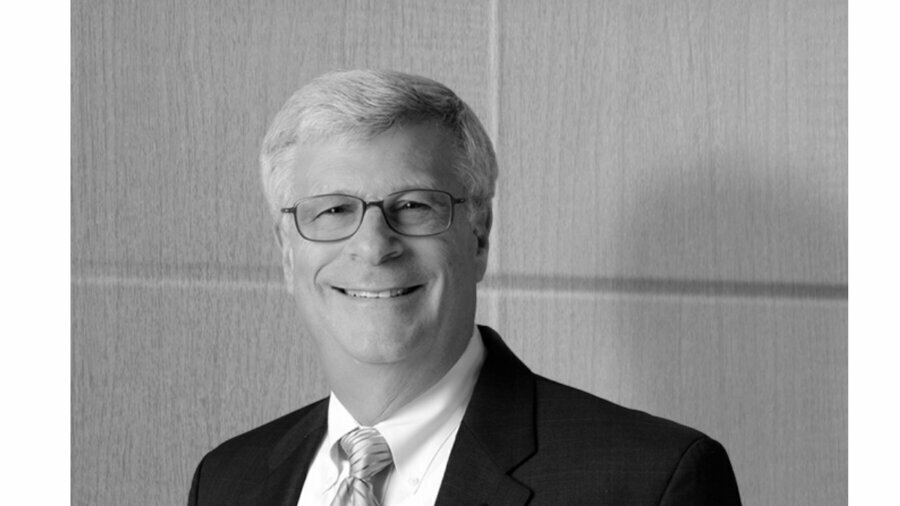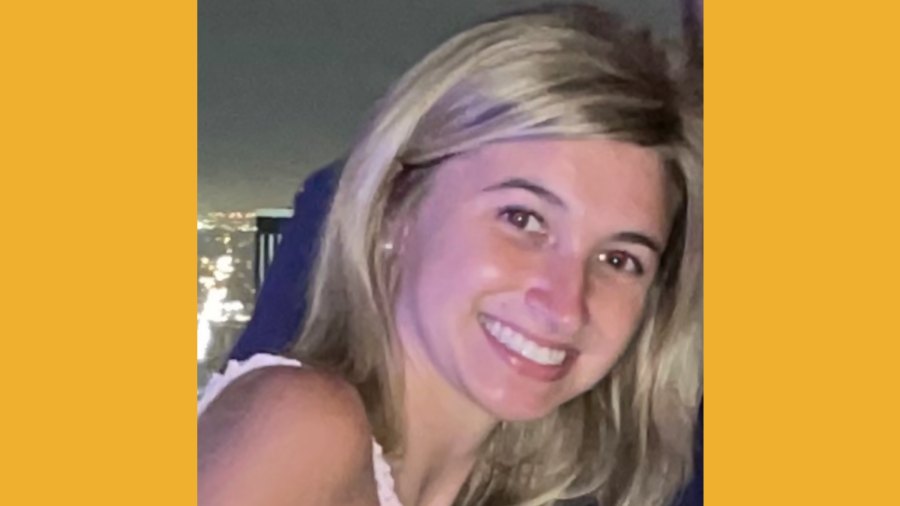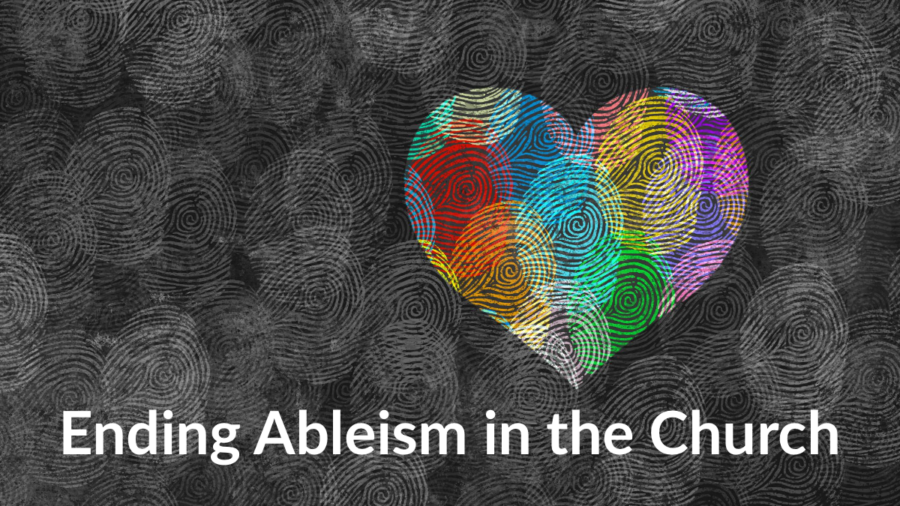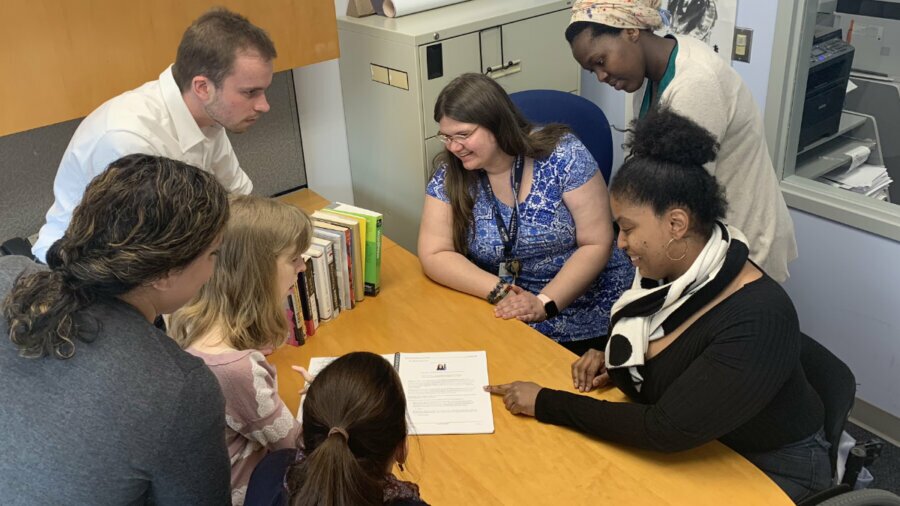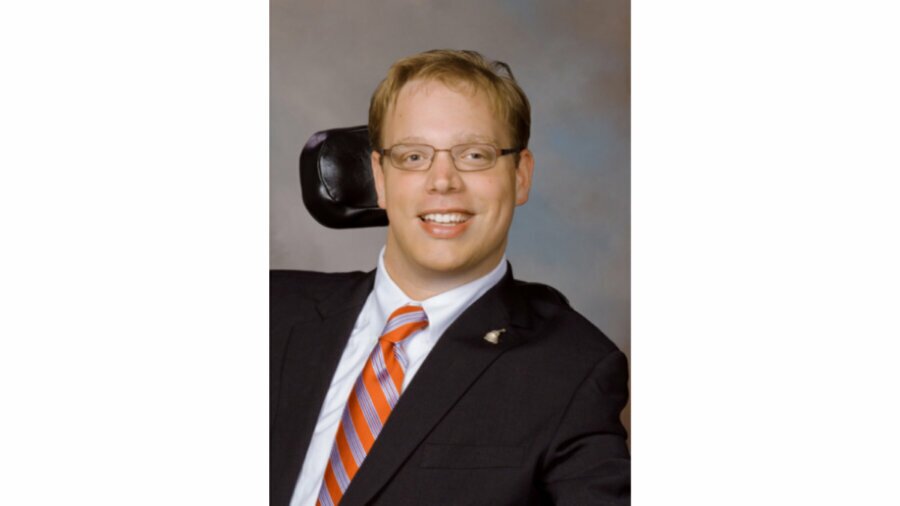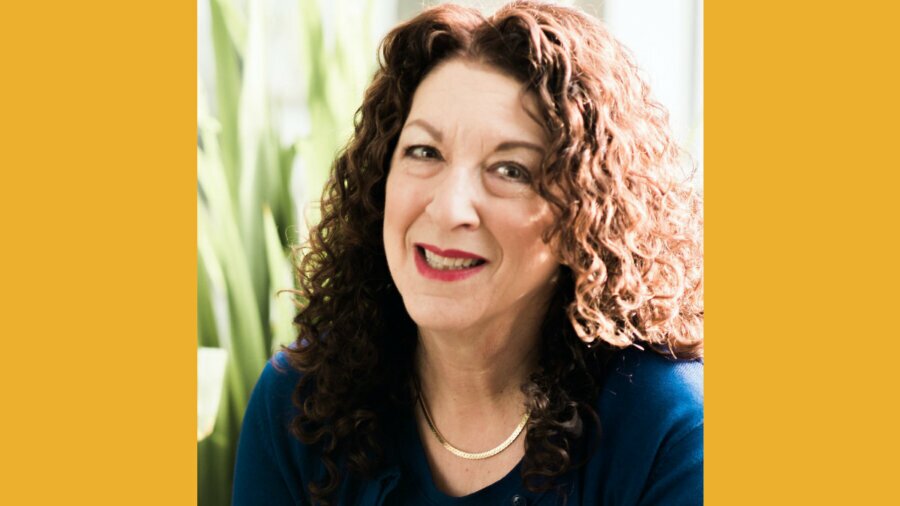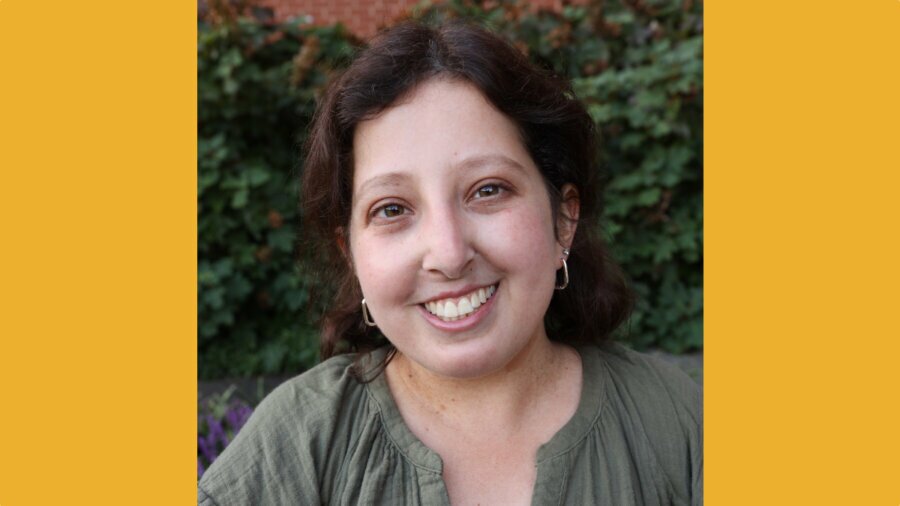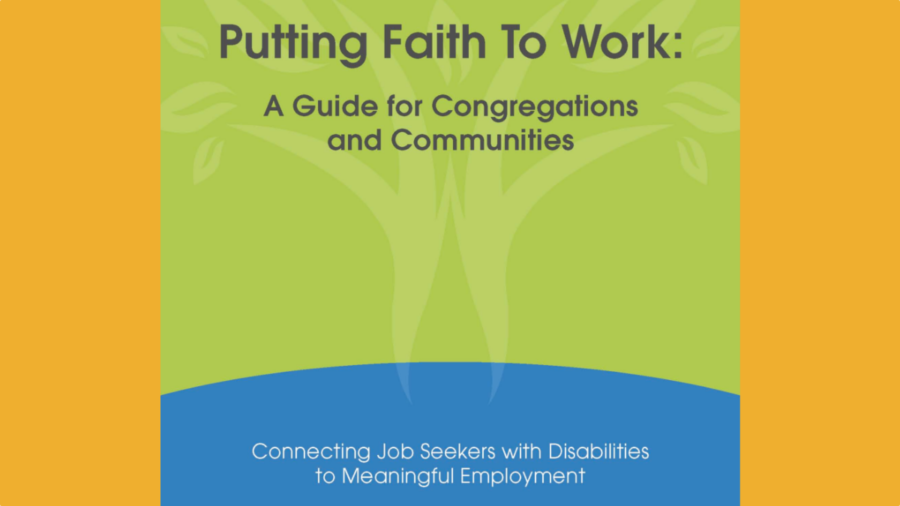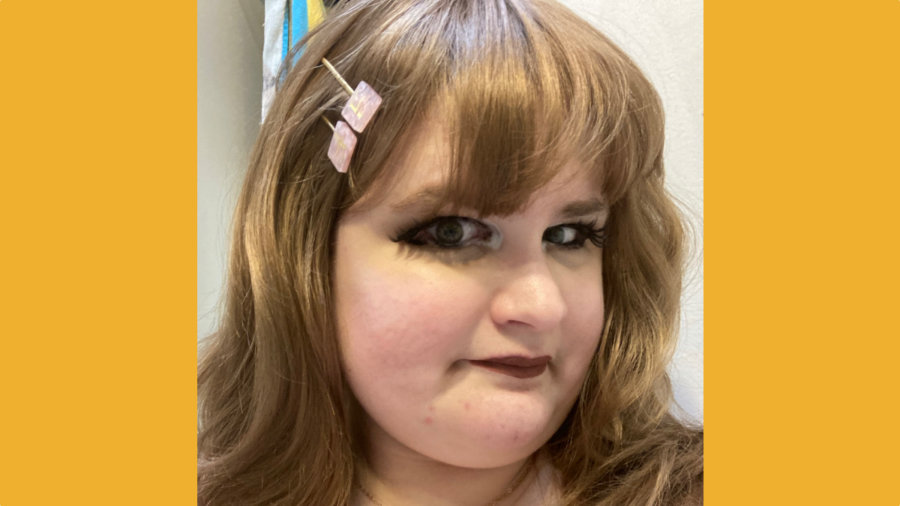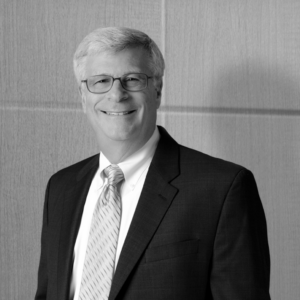 I didn’t know what to expect when I met Bobby Silverstein. I had met many great disability icons, but Bobby was sort of a mystery to me, a name that I always knew, but knew very little about. It was thus with some trepidation that I invited him to share an introduction reflecting around 30th anniversary of the ADA on what the law meant to him, as an advocate, a lawyer, and a Jew. Bobby opened his remarks saying “to me, the ADA is a codification of the commandment to do justice and pursue acts of loving kindness.” He continued, “to do justice, one must understand history and the nature of injustice experienced by people with disabilities.” He followed with a haunting and powerful primer on the injustices faced by people with disabilities in Western civilization. [continue reading…]
I didn’t know what to expect when I met Bobby Silverstein. I had met many great disability icons, but Bobby was sort of a mystery to me, a name that I always knew, but knew very little about. It was thus with some trepidation that I invited him to share an introduction reflecting around 30th anniversary of the ADA on what the law meant to him, as an advocate, a lawyer, and a Jew. Bobby opened his remarks saying “to me, the ADA is a codification of the commandment to do justice and pursue acts of loving kindness.” He continued, “to do justice, one must understand history and the nature of injustice experienced by people with disabilities.” He followed with a haunting and powerful primer on the injustices faced by people with disabilities in Western civilization. [continue reading…]
Faith and Spirituality
Mental Health Strategies for the Holiday Season
The holidays can be busy and stressful for many people. The hustle and bustle of decorating, shopping, or for some, being alone or missing a loved one, can be overwhelming. Some push through to the point of not taking care of themselves, while others may withdraw. Everyone copes differently, and there are numerous strategies one could use to help their mental health this holiday season. Here are a few possibilities:
Remember what really matters to you: You could do this by making a list of what you enjoy, including traditions, creating new memories, or spending time with those that matter to you. [continue reading…]
Reflections on Grief and Loss Pre-Holidays
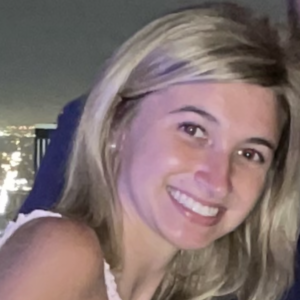
Gabriella Helkowski
Grief is a primary feeling for those who have lost someone close. We will go through grief with every single person who has ever loved. Grief is an emotion that can come with loss. People who are grieving may experience complex emotions like feelings of helplessness, hopelessness, anger, sadness, numbness or confusion. [continue reading…]
Ending Ableism in the Church: by Gabriella Helkowski and McKenzie Stribich
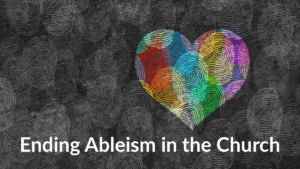 On August 11 and 12, we attended Let’s End Ableism at Church, an interactive webinar hosted by the Disability Concerns ministry of The Christian Reformed Church of North America and The Reformed Church in America.
On August 11 and 12, we attended Let’s End Ableism at Church, an interactive webinar hosted by the Disability Concerns ministry of The Christian Reformed Church of North America and The Reformed Church in America.
The first day largely focused on defining ableism in its many forms. The second day laid out practical solutions to ending discriminatory practices against disabled people in the Christian church.
Each day began with a song and reflection on scripture. The pastor giving the first reflection urged us to give grace to our oppressors so that we might invite them into the work of ending ableism. He reminded us that power is a threat to one’s faith in God, and so, in inviting oppressors to be liberators, we engage in life-saving work. [continue reading…]
Asking for Accommodations
The Americans with Disabilities Act requires that all employers, including government entities, faith-based organizations, and employers in both the public and private sector, provide reasonable accommodations in the workplace. Offering and asking for accommodations can be complex. It can be hard for some people to ask for accommodations. It can also be hard to receive accommodations in a timely and consistent manner. I interviewed two early career professionals currently participating in RespectAbility’s National Leadership program about their past experiences asking for accommodations.

Erica Mones
Depending on who you ask, asking for accommodations can be easy or hard. Some disabled workers feel comfortable asking their employer for accommodations, like Erica Mones, Entertainment and News Media Apprentice. Erica has had very positive experiences with accommodations in the past. She says both of her previous employers have been good about it. However, she notes that her past work experience has been in the social justice space, and that is why she has felt comfortable asking. She thinks that if she were to work somewhere else, such as a customer service job, she would not be as comfortable asking for accommodations. She might even be scared to ask for accommodations there. Other disabled workers, like McKenzie Stribich, Faith Inclusion and Belonging Apprentice, might feel bad about asking for accommodations because they feel like they are a nuisance. She says she feels somewhat comfortable but a little anxious asking employers for accommodations because she feels like she is being annoying by asking for them. In their experience, she said they “[found] it hard to confront bosses” about accommodations not being met. [continue reading…]
I Started My Own Business: by Matthew Shapiro
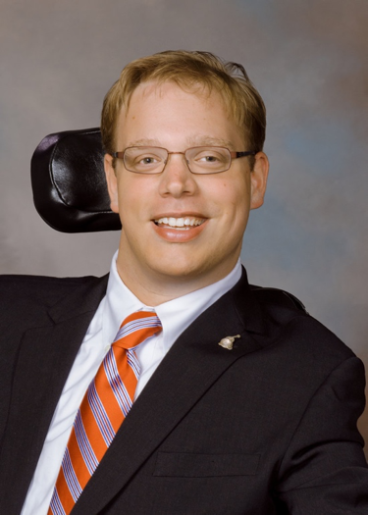
Matthew Shapiro
I always had a goal of working in the disability space but was never quite sure how I was going to achieve it. One night, in December of 2014, I was in my bed contemplating all the things that I desired to do to make an impact in the world around disability. I wanted to be a well-known voice around disability issues. Like a lightning bolt, this idea popped into my head: Why don’t I start a disability consulting business? I had 15 years of experience in the disability space, public speaking, and mentoring young people. The idea of Six Wheels Consulting was born. I took a deep dive into the world of entrepreneurship.
I took this idea of starting my own disability consulting business to my parents and their first reaction was one of doubt. “I don’t think you can do it,” they said. “I don’t think there is stability in that. Maybe you should continue looking for jobs.” [continue reading…]
Reflecting on Advocating for Accommodations
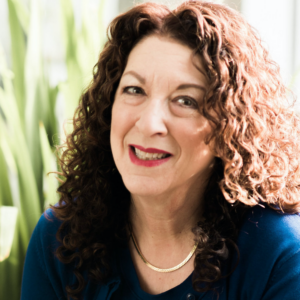
Shelly Christensen
Discovering that I live with attention deficit hyperactivity disorder (ADHD) was a relief! Managing the lives of three kids in three different schools who were involved in different outside of school activities, learning to navigate the special education system and advocacy, and working full time in an outside sales job created such chaos! Trying to keep on top of everything was simply overwhelming.
I read the book, “Driven to Distraction,” by Edward Hallowell and John Ratey at the request of one of my son’s teachers. My son was diagnosed with ADHD, and his teacher thought it was important that we were on the same page. I appreciated her willingness to work with my son so much that I immediately picked up the book and read it between loads of wash and running carpools. [continue reading…]
Teaching Accessibility One Newsletter at a Time
“Lessons on accessibility – or any kind of advocacy or awareness – can and should never be relegated to just one ‘special’ month. But it’s never too late to start.”
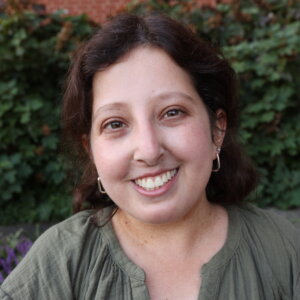
Lily Coltoff
Overseeing an organization’s employee newsletter means having almost complete editorial control, which in turn means that you can more or less add in anything you want, so long as you can argue that it’s both applicable and appropriate. I mostly use this privilege to hype up my team members on their birthdays or to share resources created by some of my favorite coworkers, but sometimes, I use it for education and advocacy – particularly for causes that I care a lot about.
October is National Disability Employment Awareness Month (NDEAM). This is a line that I put in an email not so long ago – linking to, of course, RespectAbility and their resources for this recognition month. In general, I always try to link to a Jewish or Jewish-connected organization – whether they are a partner organization or not – that focuses on the community I am hoping to elevate. For Pride Month, we turn to Keshet. Hispanic Heritage Month, Jewtina y Co. Black History Month, the Jews of Color Initiative. And of course, for NDEAM and Jewish Disability Awareness, Acceptance, and Inclusion Month (JDAIM), which takes place in February, I turn to RespectAbility. [continue reading…]
Putting Faith to Work: How Congregations Can Support Employment for People with Disabilities
by Bill Gaventa, PFTW Project Consultant, and Erik Carter, Vanderbilt Kennedy Center UCEDD
How do most of us get our jobs, at least somewhere along our work lives? It is often through personal relationships and networking that we find out about openings. Or, in other words, social capital is often the pathway to work.
Congregations are among the most numerous and natural support organizations in the United States. In fact, there are over 300,000 local faith communities across a diversity of traditions. Who attends these faith communities? Your immediate answer might be a collection of people who share a common set of beliefs and commitments and have chosen a particular congregation as their spiritual home. But there is another way to look at this membership. Faith communities are also filled with employers and employees from throughout the surrounding community. It is comprised of people who have deep knowledge of and personal relationships throughout the community. Moreover, faith communities represent the largest source of donors and volunteers in the country. [continue reading…]
Finding My Footing: Entering the Nonprofit World as a Disabled Professional
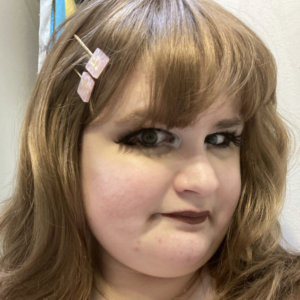 If you had asked the Leah Ilana of 2020 where she would be career wise, she likely wouldn’t have guessed learning about grant writing for nonprofits in a hands-on environment. My educational background is in history and my undergraduate internships and employment experiences are in libraries, archives, and museums. After graduating with my bachelor’s, I found myself in a variety of roles from touring with a children’s dance competition to wearing many hats at a start-up focused on personal empowerment and consulting.
If you had asked the Leah Ilana of 2020 where she would be career wise, she likely wouldn’t have guessed learning about grant writing for nonprofits in a hands-on environment. My educational background is in history and my undergraduate internships and employment experiences are in libraries, archives, and museums. After graduating with my bachelor’s, I found myself in a variety of roles from touring with a children’s dance competition to wearing many hats at a start-up focused on personal empowerment and consulting.
No matter how polished I may look on paper, I have always been plagued with a crippling sense of imposter syndrome. Constantly doubting myself, I felt directionless by the time my chronic illnesses worsened after a bout of COVID in March 2020. So, joining the cohort of apprentices through RespectAbility’s National Leadership Program as a Jewish Nonprofit Management Apprentice felt like a dream come true. A dream that I still felt unworthy of. Moving through the program, I learned how to apply my natural talent for writing and skills learned in my MFA and slowly gained confidence in preparation for my entry to the nonprofit world. [continue reading…]


